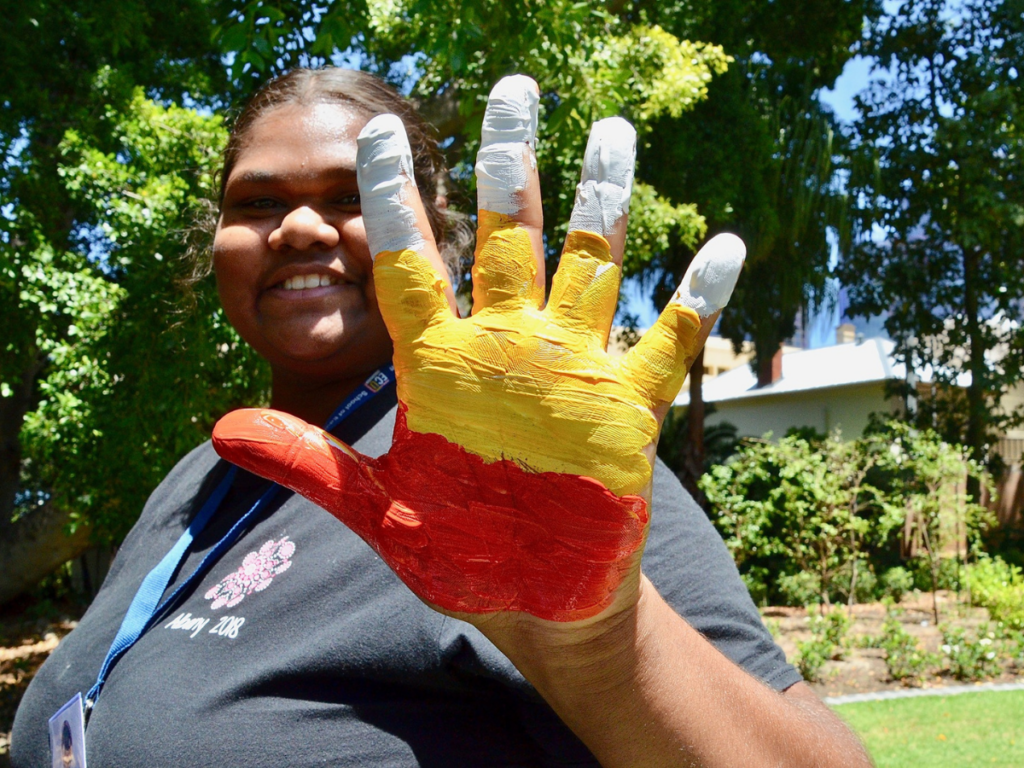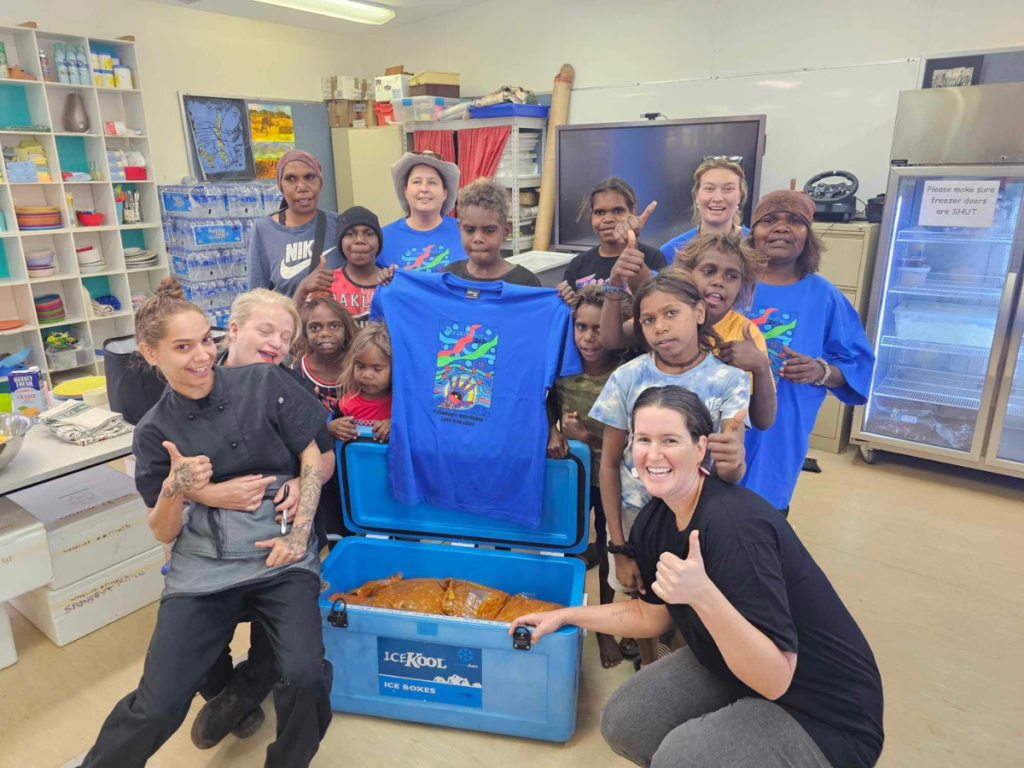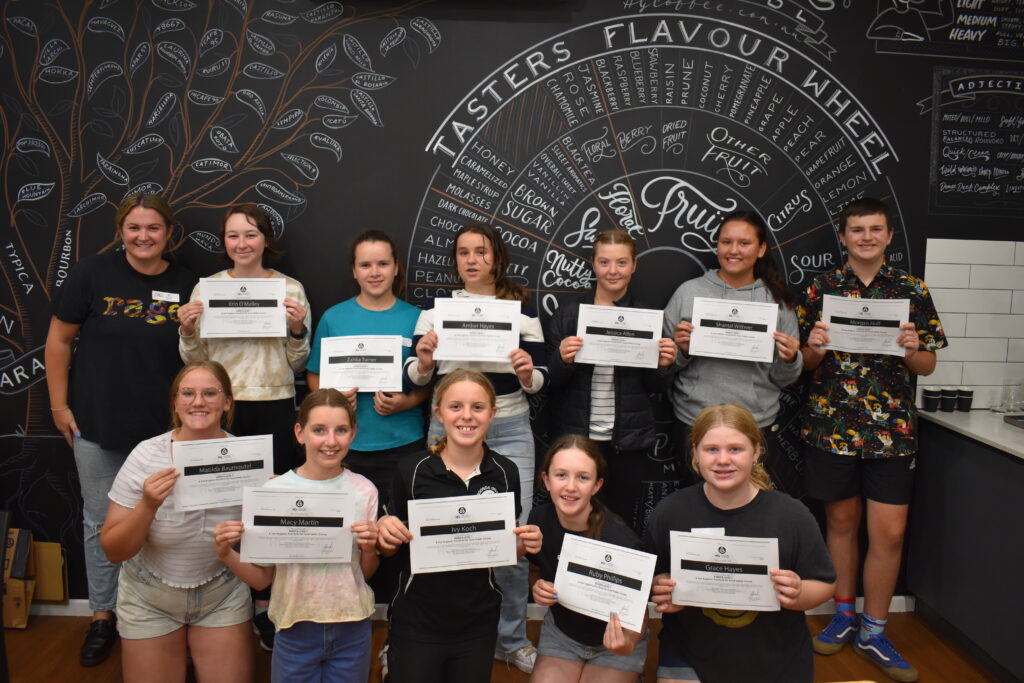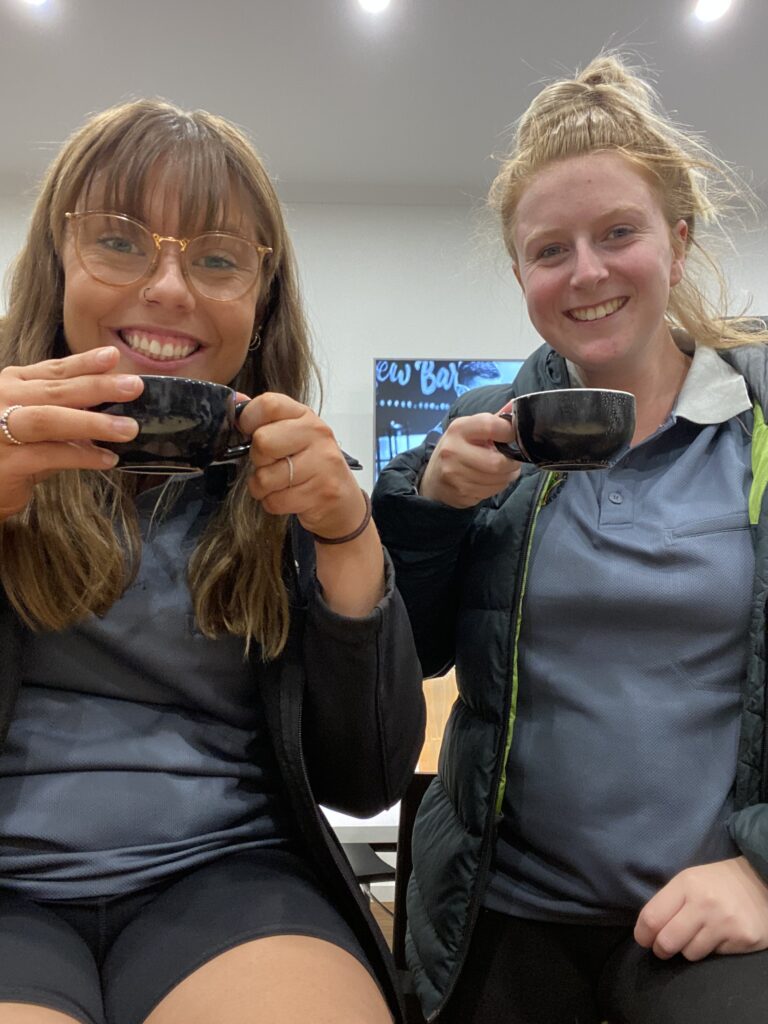Foundation for Rural & Regional Renewal (FRRR)
With support from a variety of generous supporters including The Sally Foundation, Seaton Foundation and Bunnings Warehouse, FRRR awarded $36,000 via six grants to not-for-profit community organisations in and around Lismore for a variety of projects aimed at supporting local youth.
The FRRR ABC Takeover Youth Catalyst Grants support communities to take action on the ideas generated by regional youth at the annual ABC Takeover Regional Summit. The annual Takeover Summit provides local students with a platform to speak up and have their voices heard on issues that matter to them within their own community.
The grants provide a mechanism for these ideas to become reality in their community, with project delivery intended to establish a greater connection between youth and community organisations; support youth to drive change in their community by backing their ideas; and ensure that young people are valued for their contributions and time.
| Organisation | Project | Location | Grant |
|---|---|---|---|
| Connect Northern Rivers Inc | Destine Create a film at the Connect Northern Rivier Career Expo to showcase local career pathways, increasing awareness and opportunities for young people in Lismore. | Lismore, NSW | $6,000 |
| Lismore City Council | High Schoolers' Haven Launch a youth-led pop-up event space in Lismore to foster social connections, support, and skills development for Lismore youth. | Lismore, NSW | $6,000 |
| Our Plan C Inc | NexGen Navigators: Trash Talkers Equip local youth with the skills to lead their own youth-led environmental projects to activate their environmental awareness and comunity resilience. | Lismore, NSW | $6,000 |
| Nimbin Neighbourhood & Information Centre Inc on behalf of Nimbin Youth Events | Youth Fest Create a youth-led festival that empowers young people to showcase their talents and develop event management skills to foster community connections. | Lismore, NSW | $6,000 |
| The Tropical Fruits Inc | StandUp StandOut Implement workshops to empower Lismores diverse youth through art, fostering self-pride, community connectinos and improved mental health. | Lismore, NSW | $6,000 |
| Creative Peoples Collective Inc | Culture Peoples Collective Empower youth through artistic workshops and events, fostering skills, self-expression and community cohesion. | Lismore, NSW | $6,000 |
FRRR and VFFF today announced their partnership to expand the reach and impact of the Backing the Future program, which VFFF launched in 2022.
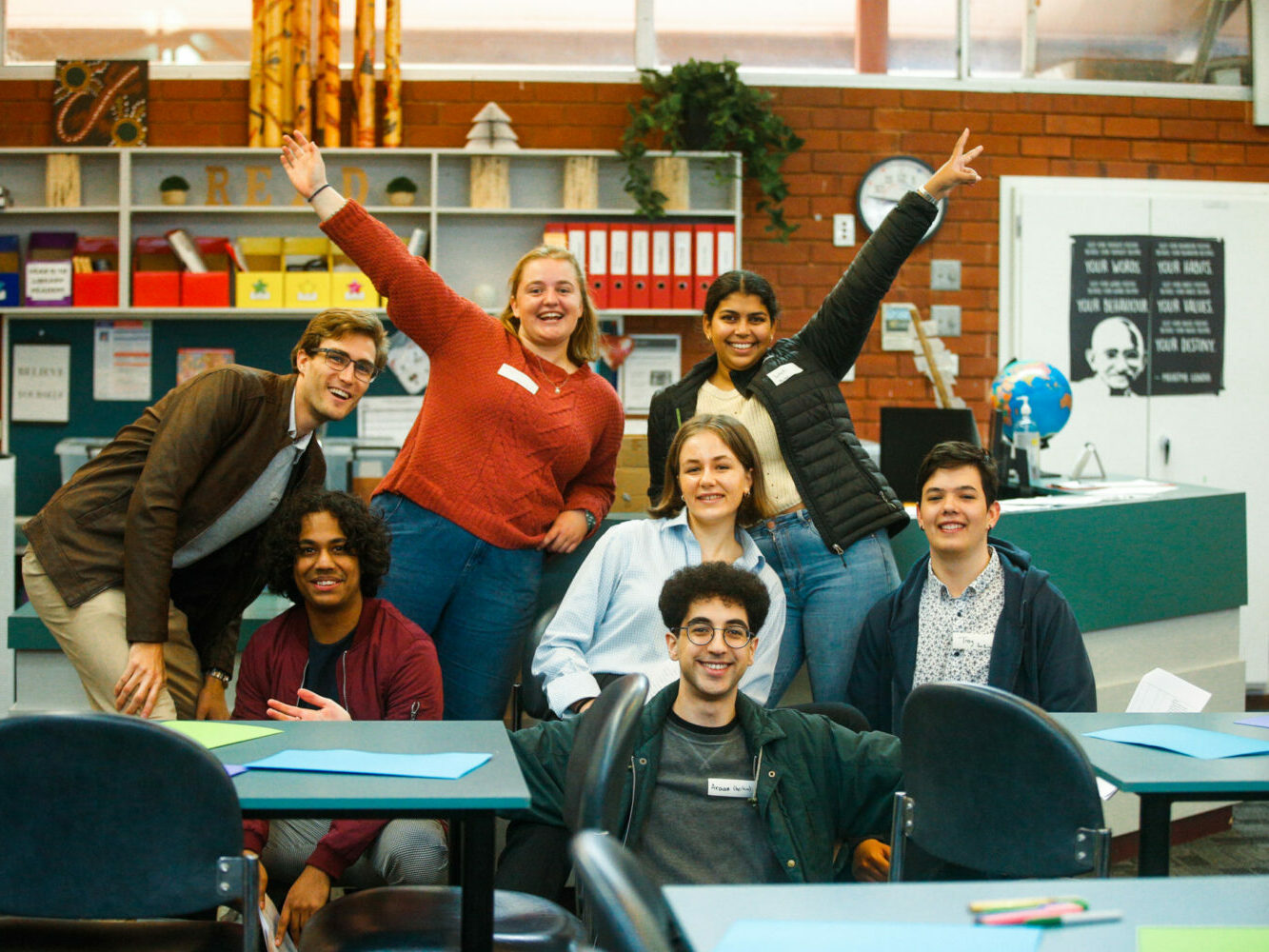
Backing the Future supports individuals and groups of individuals working to enhance the lives of people aged 12-30 who live in remote, rural and regional NSW and QLD. It offers grants of $50,000 over 12 months to support projects that align to one or more of four focus areas.
The grants are designed as seed funding for new ideas that support young people in their community. The funds can be used to assist in researching, piloting or accelerating early-stage ideas and can be used for a range of purposes such as paying a salary, purchasing technology or covering rent for office space, as long as it supports the approved initiative.
FRRR and VFFF have a history of collaborating for greater impact in remote, rural and regional communities, and are joining forces again to ensure that more young people benefit from the Backing the Future program.
VFFF CEO, Jenny Wheatley, said that by working together, the organisations know that they can enable more great ideas to come to fruition.
“VFFF established Backing the Future to provide focussed support for youth. In our first three rounds, we’ve seen some passionate people make wonderful progress on issues that matter to them and their community and which enhance the lives of young people. By partnering with FRRR, we want to extend our support into more remote, rural and regional communities.
“By working together and leveraging FRRR’s network, we hope to see more applications from more individuals who can make a difference in the lives of young people. In addition, with a larger team than VFFF, FRRR will be able to provide more support to those leading these projects, building their capacity and strengthening community for the future,” Ms Wheatley explained.
FRRR CEO, Natalie Egleton, said that the timing is great, as FRRR has recently committed to doing more to support the next generation of remote, rural and regional leaders.
“Young people want to make a difference to their communities and to the success of regional Australia, but they don’t always want to do it in the traditional ways.
“Great ideas are often hindered by funding that requires a proof of concept. In contrast, this program emphasises great ideas and the enthusiasm and energy of the individual pitching the concept. It allows them to take on leadership roles and can be a catalyst to real change.
“It’s not just open to young people though – anyone who has an idea that will benefit young people in remote, rural and regional communities can apply,” Ms Egleton explained.
A great example of how FRRR and VFFF are already having an impact on young people together, is through Backing the Future grant recipient, Jameson Harvey, founder of Red Dirt Robotics.
Red Dirt Robotics had received funding through the FRRR ABC Heywire Youth Innovation Grants to deliver two STEM workshops in remote schools. After seeing the impact of that program, Jameson used his Backing the Future grant to undertake a three-month intensive tour across rural and remote QLD teaching robotics and coding to young people.
The next round of the Backing the Future program will be for projects that benefit young people in NSW, with the grant round opening 26 July. The 2024 QLD round is currently being assessed, with the 2025 QLD round opening early next year.
A webinar will be held on 7 August, where VFFF and FRRR will share more about the program, including some case studies of the impact of past grants. Register for the webinar at: https://events.humanitix.com/backing-the-future-webinar.
In the meantime, to learn more, head to frrr.org.au/backing-the-future-by-vfff-and-frrr/ or call 1800 170 020 and speak to FRRR’s Youth Futures Manager, Lauren.
In 2013, a group of like-minded and passionate home economics teachers in Western Australia got together to create an organisation focused on training and assisting young people to develop career pathways in the education, food and hospitality industries.
The group, called Live To Tell Your Story Inc (LTTYS), runs an annual program called Prepare Produce Provide Djinda Ngardak. This culinary program first launched in 2017 and offers First Nations youth (aged 15-17 years) the opportunity to attend a life-changing, week-long camp that shines a light on First Nations culture and connection to land and food. Attendees from across WA are trained and mentored by some of WA’s top chefs. The program celebrates culture, food and storytelling, as well as developing skills primarily linked to employment pathways.
LTTYS received a $10,000 Strengthening Rural Communities Grant to assist in delivering a revised version of Djinda Ngardak alongside the 2023 Desert Dust Up. This annual event brings together eight schools from the Ngaanyatjarra Lands in the Goldfields-Esperance region of Western Australia for three days of activities.
The theme for the program was “Let’s Power-up for Dust Up”. In adapting to the requirements of Desert Dust Up, LTTYS worked closely with the Ngaanyatjarra Lands Schools leadership team, staff and cultural leaders to prepare nutritional meals, access local food sources and create a culturally responsive ‘food skills’ development program to complement both the social and educative aims of Desert Dust Up. The model combines traditional cooking practices with contemporary recipes and styles.
Over 17 days, the Prepare Produce Provide Djinda Ngardak team delivered workshops at seven campuses across Ngganyatjarra lands. Students and staff were active participants and there was a noticeable increase in school attendance as their trip progressed. The workshops were guided by Indigenous Elders and chefs using gathered bush ingredients and provided an insight into ancestral culinary heritage. Evening sessions were also held to support and educate teachers in the delivery of food-related workshops that they could incorporate in their classroom teaching. Additional community members, including police, nurses, Elders and rangers, also participated in the delivery of the workshops.
In addition to teaching the basics of food hygiene and nutrition, and being mentored by industry professionals, the culinary workshops delivered a range of other soft, transferrable skills, as well as sharing and exchanging cultural knowledge, skills and traditional practices, storytelling and enhancing culinary skills.
The program culminated in the delivery of healthy lunchboxes for participants at the 2023 Dust Up. Across the three days of events, more than 4,000 pieces of food were cooked and served to over 350 guests in the local and wider communities. The meals reflected learnings and the work achieved from the workshops on the Lands.
While the 2023 Djinda Ngardak Dust Up program was deemed an outstanding success, it certainly wasn’t without its challenges such as shifting timelines, changing numbers for catering and food supplies either missing or simply not available.
Catherine MacDougall, founder of LTTYS, said that the support from FRRR has provided an opportunity to build networks with additional community members that will be called upon for 2024 Dust Up.
“Relationships are key to the sustainability and growth of the program. FRRR has provided support funds to enhance the Dust Up program, originally developed to address the large issue of food insecurity in remote regions of Western Australia. Dust Up is now a significant program for the LTTYS organisation. It reflects the passion and dedication of our team.”
More than 30 school-aged students will ‘takeover’ Lismore from 20 May to 24 May to share their stories as part of the ABC’s Takeover Youth Summit.
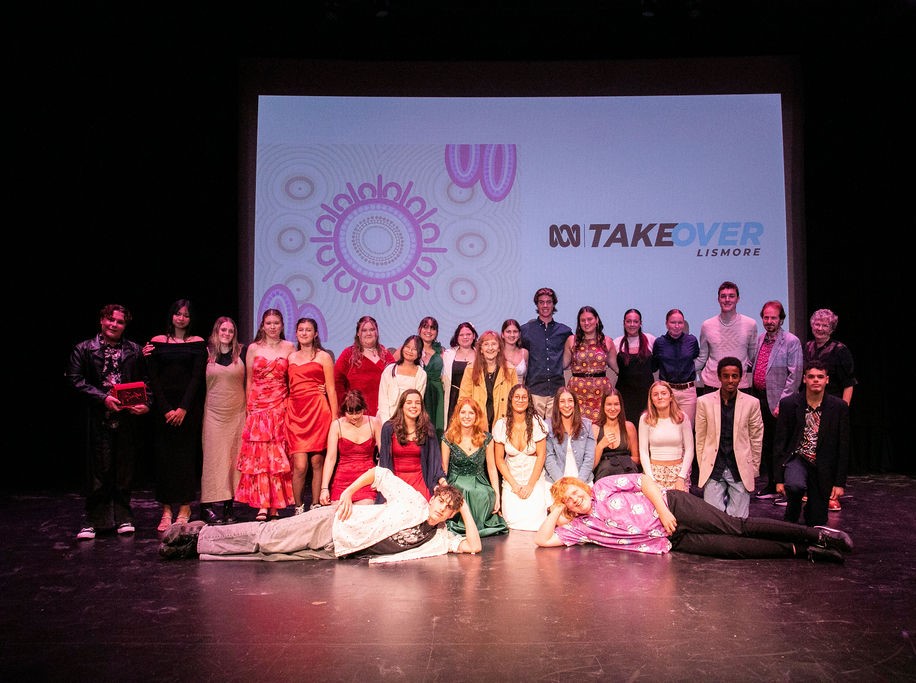
The Summit is a partnership between the ABC, the Office for Youth; Department of Employment and Workplace Relations and FRRR.
Thirty-four students have been selected to have their stories and ideas featured on the ABC during the Summit and beyond. The winning stories showcase the diversity and bravery of young people in the region.
To further back these ideas, FRRR will be offering support to community organisations to adopt and adapt the ideas developed by Summit participants.
Natalie Egleton, FRRR CEO, said, “FRRR is inspired to be part of their journey and to invest in the local community so young people can have a powerful say in the future of their region.”
Takeover Lismore winners will be featured across the ABC during the week of 20 May 2024.
To read the full media release and find out more information about the program please visit: abc.net.au/takeover-lismore.
In an effort to empower local youth and provide employment skills, Karoonda District Council successfully secured a $10,000 FRRR ABC Heywire Youth Innovation Grant under the 2022 idea, ‘Discover Your Future’, with a project that is now brewing success for local youth.
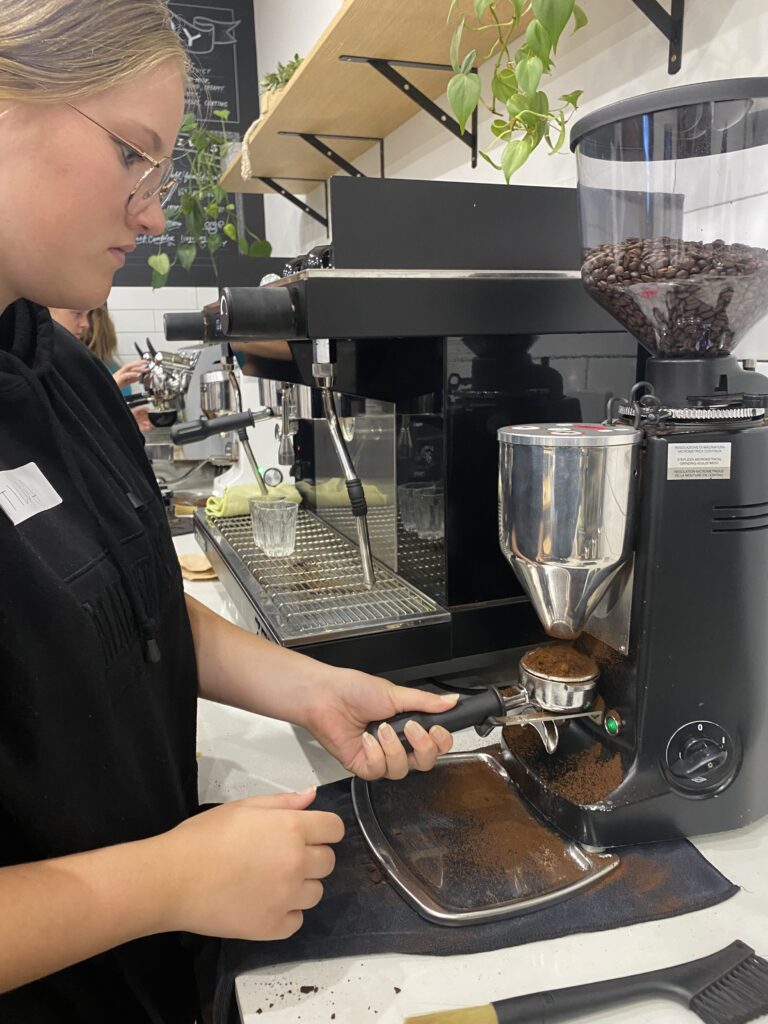
The project, spearheaded by the council’s Youth Action Committee (YAC), aimed to provide professional training and entrepreneurial opportunities for young individuals in the small regional area, located 150 km east of Adelaide. With just 17 council staff and a population of 1,090 spread over 4,415 km2, the council recognised the need for initiatives that would not only develop skills for local youth, but also nurture future leaders and provide a funding source for future youth projects.
The YAC is a group of young people aged between 12-25 designed to develop the leadership and life skills of its members. The group discusses youth issues and helps to organise youth and community events. The YAC members identified barista training as a versatile skill set crucial for enhancing employment prospects in Karoonda. With just two cafés in town, local youth faced challenges in gaining this skill set, compared to their metropolitan counterparts.
Unable to secure a trainer on site in Karoonda, the fifteen young people aged between 13 and 20, attended training at the HG Coffee School in Adelaide. While this made for a long day, the change of site had a hidden benefit – the travel together on the bus provided valuable binding time for the young people and council staff.
The training covered theoretical and practical aspects, ranging from coffee styles to customer service and machine hygiene. From there, participants received their internationally-recognised Level 1 barista certification. From this training, two young individuals secured part-time employment locally, while three others found opportunities in Adelaide, underscoring the effectiveness of the barista training in enhancing employability.
However, the project didn’t conclude with training alone. With the acquisition of a coffee machine and equipment, the YAC established a mobile coffee business strategically located at the Karoonda Institute, a community building owned by the council and a hub for civic and community events. The youth were involved in planning and discussing different business models and the best way to run a mobile coffee setup for their community. This mini social enterprise not only provides a local platform for youth to hone their skills, but also generates ongoing revenue to support future activities and ideas by the Youth Action Committee, ensuring their sustainability and lasting impact.
Beyond the Bell Great Southern Coast applied to the In a Good Place program, on behalf of the Southern Grampians Live4Life Partnership Group, for funds to support the implementation of the Live4Life model in the Southern Grampians Shire.
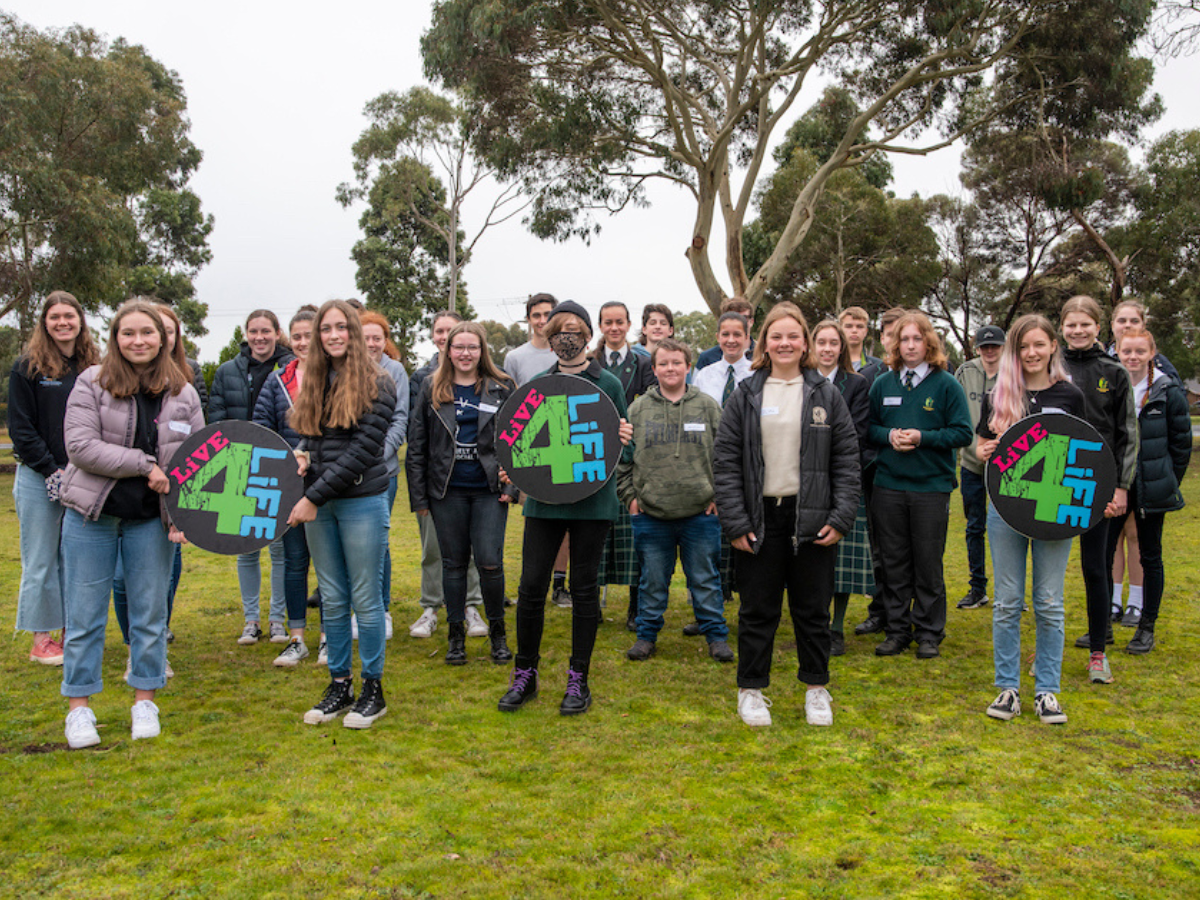
Live4Life is a community-grown, evidence-based, rural youth mental health model designed to prevent youth suicide. The Live4Life model aims to ensure that young people, teachers, parents and the wider community are better informed about mental ill health so they can be proactive in identifying the signs and symptoms of an emerging mental health issue before a crisis occurs.
The Live4Life model focuses on an ‘upstream’ approach to mental health education and suicide prevention to build resilient young people and communities. This is achieved by ‘wrapping’ protective factors around young people such as supportive relationships, support at critical times, positive help-seeking attitudes, connection to family, school and community and positive peer role models.
The school-based project to support Youth Crew activities and mental health education was all geared up ready to go when COVID first struck and schools and communities across the country went into lock-down.
After a year of navigating the challenges of not being able to deliver face-to-face programs and other challenges such as the loss of the Youth Engagement Officer, who normally coordinates the crew activities, the group developed new strategies and approaches that enabled them to successfully deliver the activities in a COVID-safe manner, including a new model of blended Youth Mental Health First Aid (YMHFA) training.
The group was highly successful in maintaining the momentum of the project, despite delivering a personal development program and training in a lock-down environment. They launched a social media presence on Instagram during Mental Health Week and created various collateral and promotional materials such as stickers, posters and help-seeking flyers to use in info packs to be distributed to students at in-school promotional events.
Once the Partnership Group was able to recommence activities within the community, they successfully delivered a series of Leadership and YMHFA courses and training sessions using a mix of face-to-face session and a blended online model via Zoom, reaching across six schools and eight allied community-based organisations that work with young people.
The organisation reported that what they were most proud of about the expansion of the Live4Life project into the Southern Grampians Shire, which they estimate has directly benefitted at least 950 people, was the engagement of the young people who joined the Live4Life CREW. They also mentioned the local YMHFA Instructor training, which has increased the community’s capacity to deliver more training across the Southern Grampians region.
The lastest news on the project from the Southern Grampians Live4Life website reports:
The project has led to increased community capacity and shared awareness of preventative mental health strategies through the MHFA training, as well as a deeper engagement with the Partnership Group in a broader context. They report that there is a noticeable increase in collaboration across the Southern Grampians area, possibly due to participation in the Live4Life initiative that connected people and agencies / organisations, and promoted collaboration centred on young people in the Shire.
“I think the most rewarding part of being in the Crew is seeing the difference you’ve wanted to achieve happen. Getting people into the idea of talking about mental health is hard but I think it’s slowly starting to happen, with the Crew being a part of that change.” – 2023 Crew member, Southern Grampians
Grants available to fund youth-focused community projects
FRRR is encouraging not-for-profit organisations (NFPs) in rural communities to work with local young people to adopt or adapt one of the six project ideas developed at this year’s ABC Heywire Youth Summit. The ideas emerged in response to the concerns identified as being most current and critical for youth in remote, rural and regional Australia.
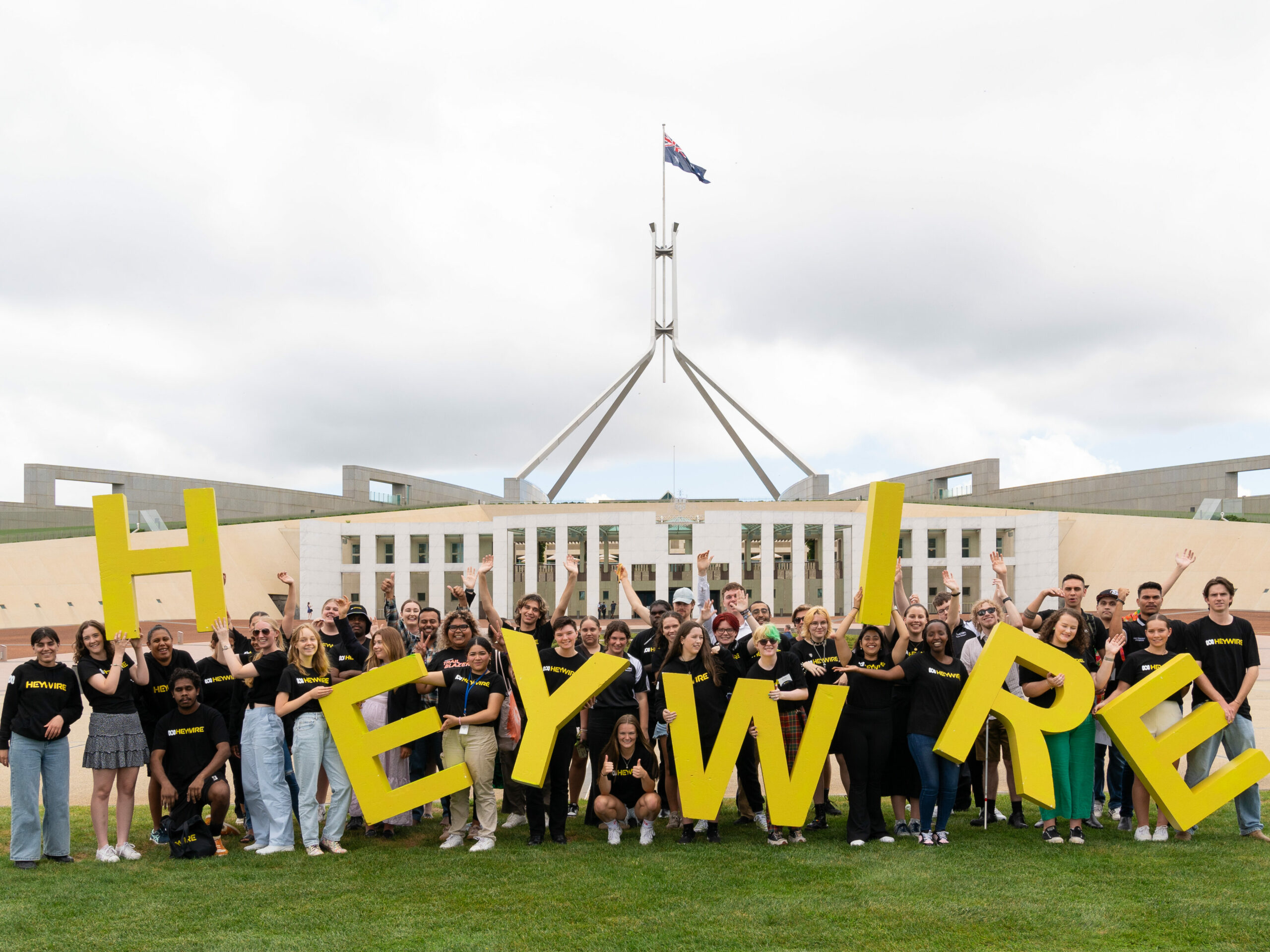
Funded through the FRRR ABC Heywire Youth Innovation Grants program, grants of up to $10,000 are available to kickstart initiatives that promote equitable access to local services and foster a sense of belonging and connection to peers and to the land.
The six ideas developed by the 35 young Summit participants during the week-long youth leadership and skills development event are:
- Bussin’: How might we create more accessible transport options for young people in regional and rural communities?
- MEE (Mentoring Educating Empowering): How might we close the gap in accessing quality education for young people in regional, rural and remote communities?
- A Place for You: How might we improve accessibility to mental health services in remote and regional areas of Australia?
- The Bigger Picture: How can we empower young people in regional towns to celebrate their differences and foster connection among themselves?
- Safe Sphere: How might we ensure that young people in regional and remote communities receive relevant and comprehensive sexual education?
- Youth 2 Grassroots: How might we promote a stronger connection between individuals and their land by fostering a culture of environmental protection and stewardship?
There is $100,000 in funding available nationally, thanks to the generous support of The Sally Foundation, David Mactaggart Foundation and private donors. An additional $17,500 is also available specifically to fund projects in Queensland, thanks to a partnership with The John Villiers Trust.
Amy from Mount Isa, Queensland, is a 2024 Heywire Winner and was part of the group that developed the Youth 2 Grassroots project. Amy said, “I love living in rural Queensland, and it was incredible being given this opportunity through Heywire to come up with an idea to improve life for other country kids. I’m so excited to see what comes from our idea.”
Deb Samuels, FRRR’s People Portfolio Lead, said the Foundation’s long-term partnership with ABC has led to significant outcomes for young people and communities.
“Having run the Heywire Youth Innovation Grants program for 12 years, we have been lucky enough to witness the impact that these young leaders, their ideas, and the funded projects have had on rural Australia.
“From mental health first aid training and career open days, to events that foster social and cultural connection and understanding, each project ensures young people have an active role in fostering a place that they are proud to call home.
“It gives me hope for the future of rural Australia when I see young people working to tackle issues, many of which echo the concerns we see in rural Australia more generally, head on. The projects that these grants fund help young leaders to address issues of equity and wellbeing and change the underlying narrative of what rural communities “don’t have”, by creating a future where we can celebrate all that rural Australia can offer its young people,” said Ms Samuels.
Justin Stevens, ABC Director News, said the FRRR ABC Heywire Youth Innovation Grants program empowered young people to turn their ideas into reality.
“The ideas generated at the ABC Heywire Summit are developed by young people in regional communities, for young people.
“The grants that contribute to this help provide remote, rural, and regional communities a tangible means for encouraging the next generation of leaders to have a voice and act on issues that matter to them and their peers,” Justin said.
To date, more than $1.5 million in community and philanthropic investment has helped to fund more than 190 projects in more than 142 communities.
Applications close 5pm AEST Wednesday 29 May, and recipients will be announced in August. More information about the six ideas is available on ABC’s Heywire website, and more information about the available grants can be found on the FRRR ABC Heywire Youth Innovation Grants program webpage.
The Kimba district was among the hardest hit by the destructive rain and floods of January 2022, which battered most of regional South Australia. Our Town Kimba (OTK) is a community-led initiative dedicated to enhancing community resilience in the face of mental health and wellbeing challenges. Acknowledging the necessity for heightened community engagement following the floods, particularly with local youth, OTK leveraged the FRRR ABC Heywire Youth Innovation Grant program to connect effectively with young individuals and empower them to lead a project within their town.
In collaboration with local high school students, OTK explored the 2022 Heywire Project Ideas, ultimately selecting the Fusion Festival idea as a resonant and beneficial initiative for local youth and the community. Fusion Festival posed the question of how to raise cultural awareness and stop racism in regional communities. OTK provided mentorship to the students throughout the grant application process, successfully securing a $10,000 to create their own community fusion festival, bringing together the tastes of Kimba to be shared through food, culture, dance and live music.
Kimba’s Fusion Festival was a youth-led, hands on experience from the very start. During the planning stages of the Festival, youth were given the opportunity to cultivate skills in event management. The project engaged mentors, educators and community members to guide the process and support the youth throughout.
The Festival, which was held in October 2023, had a profound impact on the 201 school students, kindergarten attendees and staff. Commencing with Indigenous cultural sharing, the day featured a diverse array of cultural experiences and activities, fostering conversations, learning and an appreciation for cultural diversity, all of which positively influenced individuals on personal and community levels. The Festival extended into the night, attracting over 300 people from the broader community. The lively atmosphere, diverse entertainment and communal meals contributed to a profound sense of belonging, pride and community unity.
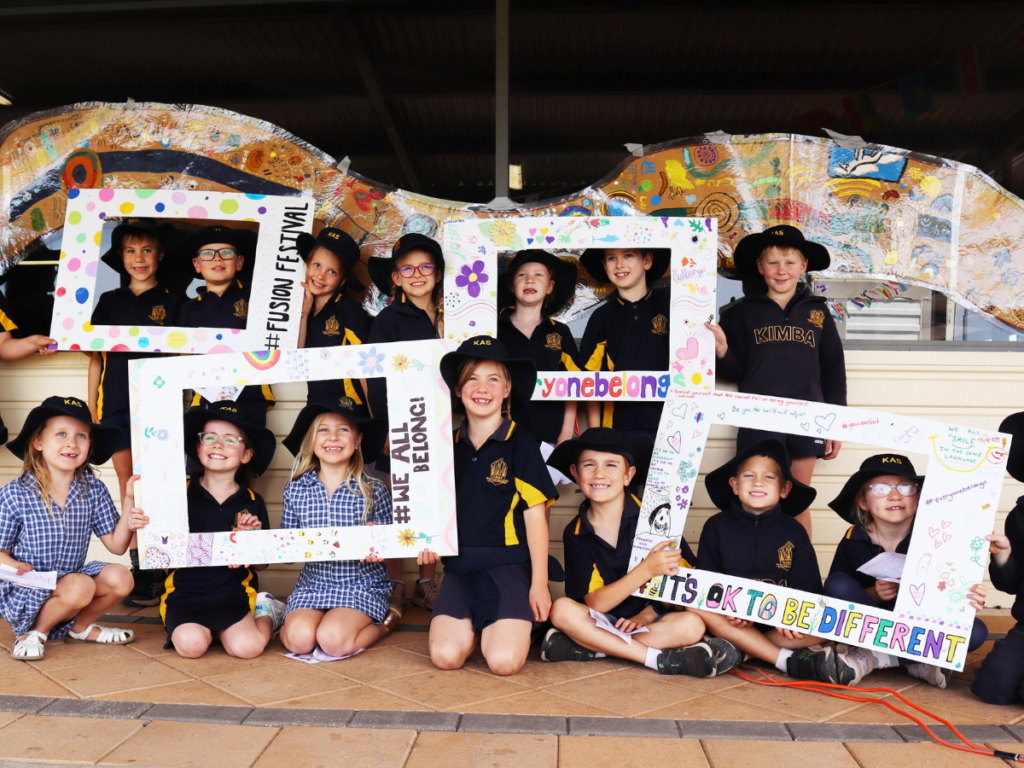
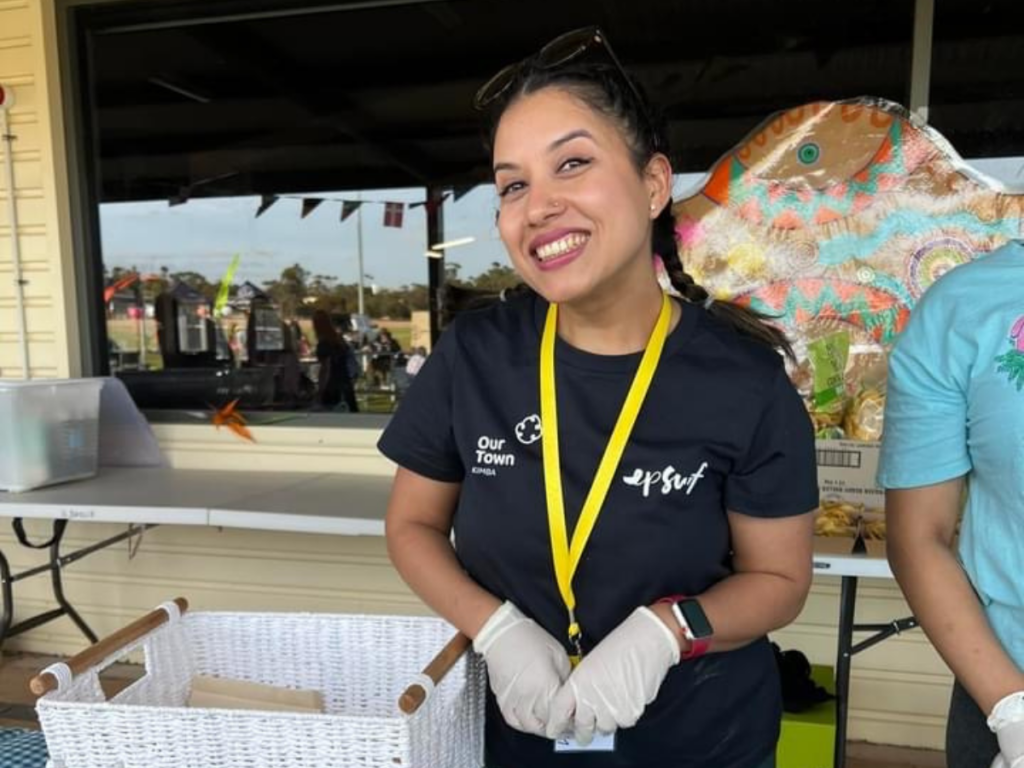
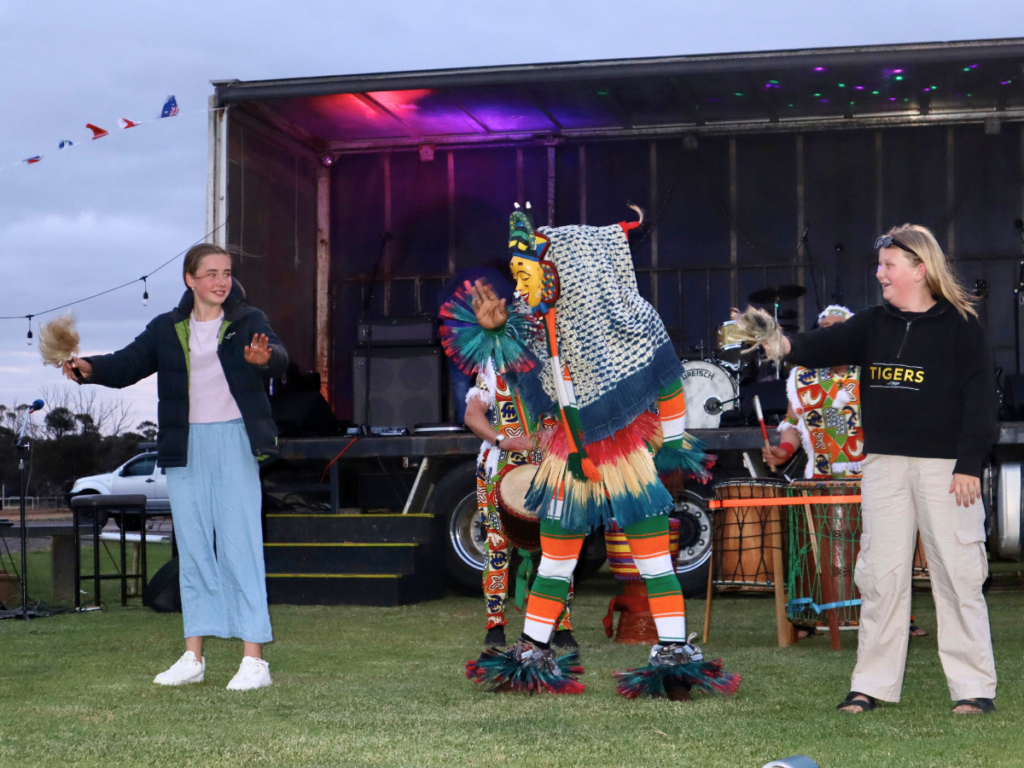
Beyond providing a platform for cultural exchange, the Fusion Festival facilitated opportunities for local businesses, volunteers and community members to come together. The positive experiences shared during the Festival cultivated ongoing relationships, community pride and strengthened the sense of place.
The grant not only supported the realisation of the Fusion Festival but also served as an opportunity to model a youth-led project in the community, highlighting the substantial value young people bring to creating a resilient and vibrant community.
The Fusion Festival was honoured at the Kimba District Council’s 2024 Australia Day Awards as the Community Event of the Year, recognising the significant impact and lasting positive influence it had on the community.
Sixteen community initiatives that will act on issues that matter to remote, rural and regional youth will share in $148,721 in grants, through the FRRR ABC Heywire Youth Innovation Grants program.
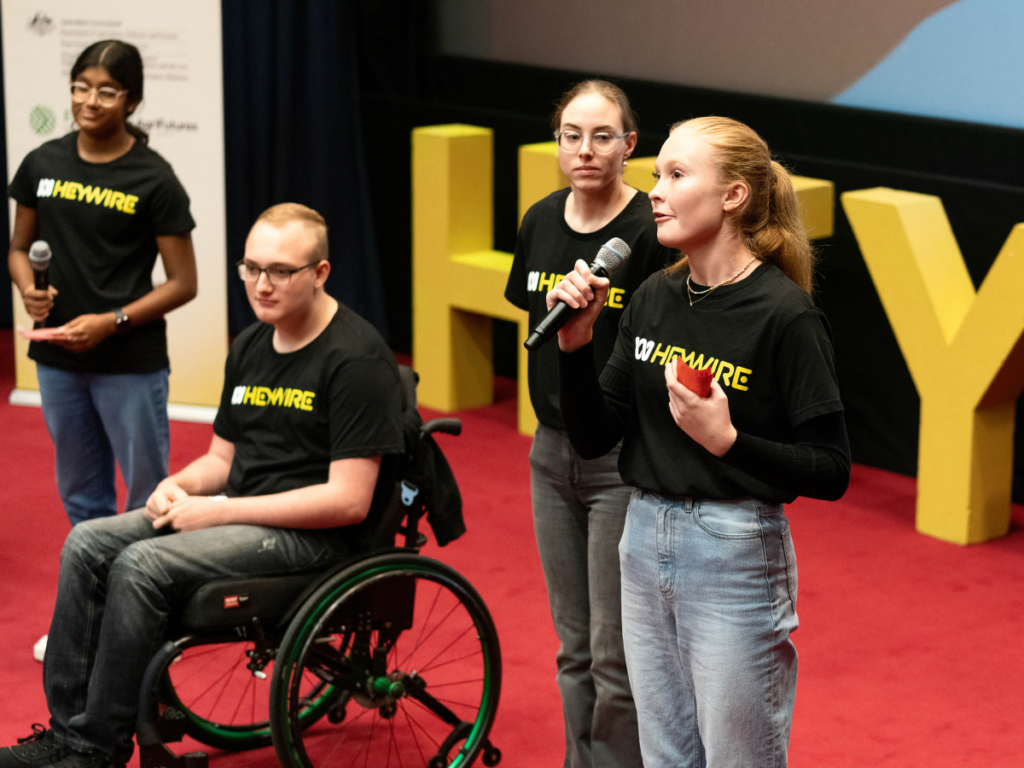
Now in its 11th year, the youth-focused program offers funds for communities to adopt, adapt and act on the ideas generated by young Australians at the ABC Heywire program’s annual Regional Youth Summit.
This year’s 39 young Summit participants developed six exciting ideas for change on issues that matter most to rural youth, with themes addressing boredom relief; easy access to mental health support; cost of food relief; education and diverse learning needs being catered for; ensuring youth voices are heard; and creating better futures for young people with disabilities.
The idea that received most applications was ‘Boredom Relief’, which resonated extensively with young people. One of the projects receiving funding to respond to Boredom Relief will be led by 2023 Heywirer Blake, who says there is a lack of opportunities for fun youth events in rural communities such as his.
“In small rural towns, it can feel like there is nothing for young people to do. We need to make sure that there are safe events and spaces for youth, or else they will look to drugs and alcohol for entertainment and excitement.
“Our project will see young people design and lead a one-day event of live music and activities. The drug and alcohol-free event will involve young and upcoming artists, and include art and cultural activities. I know it will help the young people in our community to build connections and give them practical experience in event management.
“I’m excited for it to get underway!” Blake said.
Deb Samuels, FRRR’s People Portfolio Lead, said that this program helps to put youth-led ideas at the forefront of rural communities and helps young people to feel heard.
“Young people are the future and often we find that grassroots organisations know how important it is to involve the youth and make them part of the community, but they simply lack the capacity to do so.
“Thanks to our donor partners, this program gives community groups the support and resources they need to overcome these barriers and focus their time and energy on initiatives that will make young people feel seen and empowered.
ABC Director, News, Justin Stevens, thanked FRRR for its support.
“Heywire amplifies young rural and regional voices across our ABC platforms and the Regional Youth Summit encourages their inspiring ideas for change and helps bring them to life,” he said.
“These young innovators are Australia’s future leaders and their ideas demonstrate their understanding of what their communities need.”
Examples of this year’s projects include:
- Zero Positive for Schools in Scone, NSW received $6,200 to develop the Idea 4 Change idea by preventing climate anxiety for youth with a summit featuring youth environmentalists and support for implementing school-based action plans.
- Nganmarriyanga School in Nganmarriyanga, NT, received $10,000 to develop the Boredom Relief idea by fostering youth agency and responsibility with the opportunity for youth to design their own Boredom Relief project.
- Breakaway Toowoomba in Toowoomba, QLD, received $10,000 to develop the We Are Not Alone idea by encouraging greater visibility of disability with a youth-led accessible community event to establish support networks.
- Tomorrow Movement in TAS (statewide), received $10,000 to develop the Hear Our Voices idea by preparing youth to become leaders of community-driven climate solutions with workshops to develop skills in facilitation and visioning sessions.
- Birchip Neighbourhood House Inc in Birchip, VIC, received $10,000 to develop the Boredom Relief idea by empowering youth with skills in event management through the delivery of a youth-led arts and culture event.
- Kununurra Community Garden Kitchen in Ringer Soak, WA, received $10,000 to develop the Homegrown Hub idea by growing cultural education on Indigenous plants and increasing access to food security with the installation of a community kitchen garden.
These grants are possible thanks to the generous support of The Sally Foundation, David Mactaggart Foundation, The John Villiers Trust, AMP Foundation, as well as several private donors.
The full list of grant recipients and their projects are below.
| Organisation | Project | Location | Grant | |||
|---|---|---|---|---|---|---|
| NEW SOUTH WALES | ||||||
| Barkindji Maraura Elders Environment Team | Boredom Relief Strengthen community connections and wellbeing with on-Country camps for youth. | Dareton | $10,000 | |||
| Grand Pacific Health Limited | Boredom Relief Enhance a youth-led music festival to provide opportunities for young people to engage in their community. | Pambula Beach | $9,265 | |||
| Zero Positive for Schools | Idea 4 Change Prevent climate anxiety for youth with a summit featuring youth environmentalists and support for implementing school-based action plans. | Scone | $6,200 | |||
| NORTHERN TERRITORY | ||||||
| Nganmarriyanga School | Boredom Relief Foster youth agency and responsibility with the opportunity for youth to design their own Boredom Relief project. | Nganmarriyanga | $10,000 | |||
| QUEENSLAND | ||||||
| Breakaway Toowoomba | We Are Not Alone Encourage greater visibility of disability with a youth-led accessible community event to establish support networks. | Toowoomba | $10,000 | |||
| Bridges Health and Community Care Ltd | Easy Access Equip students with strategies to improve wellbeing and navigate difficult conversations through mental health education delivered through theatre. | Monto | $5,500 | |||
| Coen Region Aboriginal Corporation | Boredom Relief Encourage youth and the community to come together at a series of outdoor movie events. | Coen | $10,000 | |||
| Now I Can Run | We Are Not Alone Encourage wellbeing and physical activity with an event to introduce race running to youth with mobility impairments. | Townsville | $9,700 | |||
| Puuya Foundation | Easy Access Strengthen youth wellbeing with on-Country camps that provide culturally appropriate mental health supports. | Lockhart River | $10,000 | |||
| TASMANIA | ||||||
| Kind Schools Limited | Idea 4 Change Foster resilience and kindness in children through mental health training for primary students. | Invermay | $10,000 | |||
| Tomorrow Movement | Hear Our Voices Prepare youth to become leaders of community-driven climate solutions with workshops to develop skills in facilitation and visioning sessions. | Statewide | $10,000 | |||
| VICTORIA | ||||||
| Bendigo Sustainability Group | Hear Our Voices Support youth skills in creative and community advocacy with workshops to develop a digital-storytelling program. | Bendigo | $9,500 | |||
| Birchip Neighbourhood House Inc | Boredom Relief Empower youth with skills in event management through the delivery of a youth-led arts and culture event. | Birchip | $10,000 | |||
| Creswick Neighbourhood Centre Inc | Boredom Relief Create a youth space to reduce isolation and improve mental health for local youth to come together. | Creswick | $10,000 | |||
| Standing Tall in Hamilton | We Are Not Alone Support mentors to become more confident and capable of working with disabled young people with youth-led access and inclusion training. | Hamilton | $8,556 | |||
| WESTERN AUSTRALIA | ||||||
| Kununurra Community Garden Kitchen | Homegrown Hub Grow cultural education on Indigenous plants and increase access to food security with the installation of a community kitchen garden. | Ringer Soak | $10,000 | |||
In partnership with the Sally Foundation and the ABC, FRRR has awarded $33,350 in grants to eight youth-led community projects in remote, rural and regional Australia as part of the Trailblazers program. The young people have partnered with local community organisations to receive the grants.
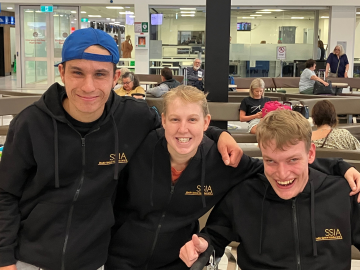
Through a Giving Sub-Fund, the Sally Foundation partners with FRRR to ensure that funding reaches groups and young people in all corners of the country. The priority of this fund is to invest in young regional leaders to build their leadership skills, and their capacity to make a difference in their communities. To achieve this, FRRR leverages our networks across rural and regional communities, draws on our expertise and systems to administer grant rounds, and provides skill development through workshops and direct one-on-one support around project development, grant writing, and understanding eligibility criteria.
Geraldine Roche of the Sally Foundation said, “The overall aim is to boost the skills of these emerging leaders to take on future funding opportunities with confidence and experience behind them.”
This year, Trailblazers attended the annual ABC Heywire Regional Youth Summit, where they received leadership and communications training and presented their projects on ABC radio and at Parliament House. Trailblazers from the 2022 and 2023 cohorts were then invited to apply for grants, funded through the Sally Foundation’s Trailblazers Development Fund, to help them bring their project ideas to life, or to help take their existing projects to the next level.
Joanna Kemp, FRRR’s Philanthropic Services Manager, said that young people are an integral part of of the process.
“There were three Trailblazer alumni on the Advisory Panel for this round of funding, and two of them had previously received grants through this fund, so their input is invaluable. They were able to draw on their Trailblazer experience and bring a youth-focused perspective to the process. Not only that, but they can speak from the perspective of being young people who live in regional areas.
“I’m always inspired by their curiosity and thoughtfulness about each application. They include constructive feedback for the applicants to help them continue building their grant writing skills for future funding opportunities. Equally, their experience on the panel is a great opportunity for them to learn about the grant process from a funding perspective, which broadens their view of the whole cycle,” Ms Kemp said
In this round, we saw some recurring themes. It’s clear that young people are eager to grow awareness around disability, environment and social inclusion. They are also wanting more access STEM activities that are delivered in a fun and engaging way. Two of the grantees this year were also successful in the 2022 round and their new projects continue to build on their activities, this time in a collaboration that will see them visiting schools in remote and rural Queensland towns and bringing their hands on programs to raise awareness and exposure to STEM learning and aviation pathways.
Receiving a grant through the program can help to build confidence for these young people to continue their leadership journey and be a springboard to further funding opportunities. You can see the full list of grant recipients below.
| Organisation | Project | Location | Grant | |||
|---|---|---|---|---|---|---|
| QUEENSLAND | ||||||
| Now I Can Run Inc | Racerunner's Take Over Aus Grow awareness and participation of people living with disabilities to participate in physical activity through a coaching course and training activities. | Various locations | $4,950 | |||
| RoboCoast Sunshine Coast Robotics Association | Red Dirt Robotics Increase access to STEM learning and activities for children in remote and regional Queensland through transport costs and repairs for touring education program. | Various locations | $4,237 | |||
| Royal Flying Doctor Service of Australia (Queensland Section) Limited | Trailblazer Tour - Aviatrix Australia x Red Dirt Robotics 3 month QLD Tour Improve awareness and exposure to STEM learning and aviation pathways for children in remote and regional Queensland communities through an outback educational tour of schools. | Various locations | $6,907 | |||
| TASMANIA | ||||||
| Now I Can Run Inc | Fighting Island State Tasmania (FIST) Improve social connections, reduce isolation and grow a connected community for people interested in Esports through the first Tasmanian Esports major competition. | Launceston | $2,000 | |||
| Self Help Workshop Inc | Project Vulcan - A Play by Disabled Artists about Climate Action and Disability Rights! Raise awareness about climate change, disability and inclusiveness through a touring theatre production across Tasmania and Victoria featuring actors with disabilities. | Launceston | $6,660 | |||
| VICTORIA | ||||||
| Gnarly Neighbours | Gnarly STEM Increase access to STEM based activities for youth in Seymour, Victoria, through purchase of IT equipment to expand activities at local youth centre. | Seymour | $5,096 | |||
| Lake Boga Waterski Club | Lake Boga Bank 2 Bank Improve social connections, health and wellbeing of young people and the wider community in the Swan Hill area through an annual community event at Lake Boga, Victoria. | Lake Boga | $2,000 | |||
| WESTERN AUSTRALIA | ||||||
| Forrest Personnel Ltd | Wings Without Barriers Raise awareness and acceptance of autism across remote, rural and regional communities through a solo light plane tour around Australia by Hayden McDonald visiting communities to share information about living and thriving with autism. | Various locations | $1,500 | |||


